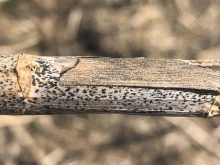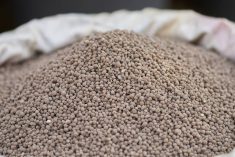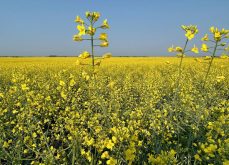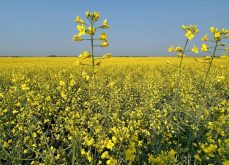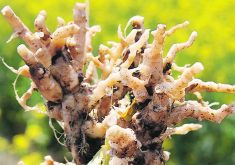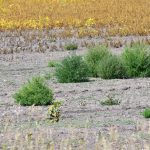A long-time Alberta Canola director is entering his third term as chair and a new member will replace another long-serving director.
Roger Chevraux of east-central Alberta was re-elected as director of Region 11 and to his third term as chair. Jeff Frost of Olds replaces Ian Chitwood of Airdrie in his capacity as Region 8 director. Charles Simoneau of Guy will replace Chitwood as vice-chair.
“We’re confident (Frost) will contribute to the continued success of the commission as he steps into the role previously held by outgoing Region 8 director Ian Chitwood,” read a Feb. 6 Alberta Canola news release.
Read Also
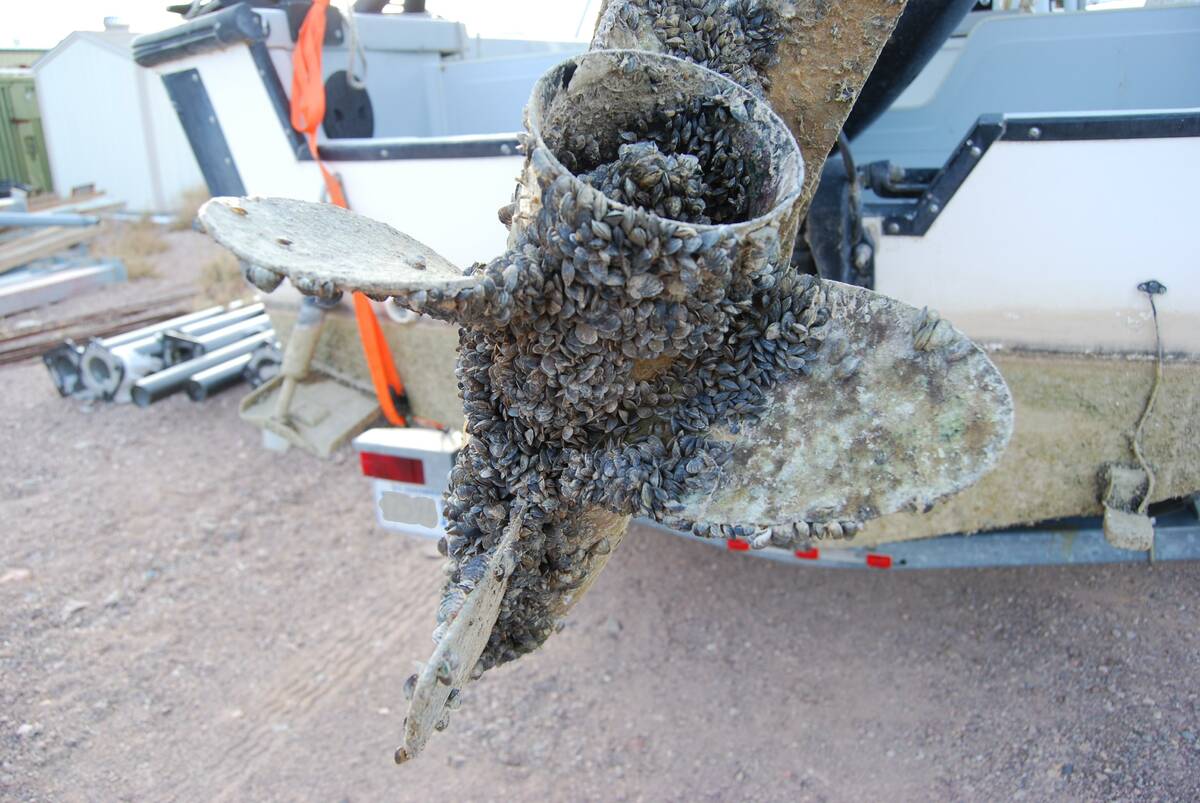
Invasive species council lending a helping hand to Alberta agricultural producers
Alberta Invasive Species Council unveils the huge economic effect of keeping invasive species unchecked to agricultural production in the province.
The election took place at the organization’s 34th annual general meeting.
Frost is a third-generation farmer who has canola, wheat and barley in his rotation.
His choice to run for the Region 8 director position was inspired by his participation in last year’s Alberta Canola Leaders event in Edmonton, a yearly function devoted to enhancing the leadership qualities of young farmers.
“The Leaders was a jumpstart to this whole thing. It’s what really pushed me to be on the board and be more involved in the agriculture community,” said Frost.

Not surprisingly, he identifies ongoing drought as his and the industry’s top concern going into the 2024 growing season.
“We’ve really dried out the last few years,” he said. “We don’t have a lot of reserves going into 2024 and lots of the irrigation reservoirs or whatnot are at an all-time low or even drained right now. The snow cover’s low; some areas have no snow whatsoever and that’s our big concern for 2024.”
The low price of canola compared to its heady highs of the past few years is also an ongoing concern.
“It’s not been a good ride,” he said. “It’s tough to say what the market’s going to do. There’s so many variables involved there, but I would hope to see it bounce back a little bit. I think the days of $20 canola are a long ways away but if we can get back into the mid-teens, then it will be a little bit more palatable to grow it.”
However, Frost is confident about the international appeal of Alberta canola and can hardly wait to get back in the field.
“As a farmer you’re always optimistic and looking for another better crop or a good crop year after year,” he said. “It’s always exciting going into spring and putting the crop in again and seeing what you can make this year.”
Long-time board member Chevraux almost sat this election out.
“It is a large time commitment so I had to really think about it for quite a while before the meeting whether or not to accept the nomination if it came,” said the third-generation producer from Killam, east of Camrose.
“I didn’t ask for it. I specifically stayed out of it to let other people decide whether or not they wanted to step forward.”
That said, he’s honoured the organization is again putting its faith in his abilities.
“I think any time your cohorts vote you as their leader is always an honour,” said Chevraux, who also serves as Region 11 director.
“Being that I’ve been elected for the third time suggests that they’re happy with the job that I’m doing and the direction that we’re taking the organization.”
The past few years have been challenging ones for the Alberta Canola organization. Roles previously filled by government are being “downloaded” onto the commissions, said Chevraux.
This approach carries both positive and negative aspects, he said. On one hand, producers get more of a voice in the direction of laws and policies affecting them.
“(Government is) looking to (farmers) for leadership, which is fantastic. And I’m glad that we’re having that voice,” said Chevraux.
On the other hand, the responsibility has come with extra expense. The cost of doing business came home to roost Dec. 19 as the board explained its $1.1 million budget shortfall, the commission’s fourth deficit budget in five years.
The board decided there were two ways to go: cut programs or increase producer levies for the first time in two decades. Discussion with farmer members since then trend toward the latter option.
“I think at the AGM we had incredible support from all those that were online and in the room. They felt that all of the things that we were doing was incredibly important and that we probably need to have a levy increase,” said Chevraux.
“So I think what’s going to happen is, we’re going to spend some time taking a look at what is going to be required. The last time a levy increase occurred was 21 years ago. I think that was perhaps too long to go without reviewing it.
“So we’re going to have to, as a board, try to decide how many years apart the levy review should occur.”
Although drought and markets are the biggest things on canola producers’ minds now, Chevraux said there is room for optimism.
For one thing, there’s the ongoing work of the National Canola Marketing Program, a partnership between Alberta Canola, SaskCanola and Manitoba Canola Growers that is geared toward advocacy initiatives and programs that support canola producers.
One of its prime goals is to spread word about the value of canola far and wide.
“It’s important to me that this campaign is successful because there’s an awful lot of people that aren’t familiar with canola,” said Chevraux.
He also hinted at some “interesting things” involving biofuels in the next couple of years.
“I think that’s going to have an opportunity to really increase our market share or our market demand for canola as a fuel, which I think is very, very exciting.”
On the home front, Chevraux said his son Derek has decided to take up the farming life.
“He’s decided that he wants to come back to the farm, so he took two years at Lakeland (College) and now he’s a partner of mine.”
Chevraux’s wife Heather, a retired English teacher, is blogging about the benefits of agriculture, “so she does a lot of work in that sphere as well.”
The complete board of directors includes:
- Christi Friesen, Brownvale (Region 1),
- Andre Harpe, Valhalla Centre (Region 2),
- Charles Simoneau, Guy (Region 3),
- Jeannette Andrashewski, Two Hills (Region 4),
- Justin Nanninga, Neerlandia (Region 5),
- Wayne Schneider, Nisku (Region 6),
- Paula Law, Lacombe (Region 7),
- Jeff Frost, Olds (Region 8),
- Christine McKee, Stirling (Region 9),
- Cheryl Westman, Vermilion (Region 10),
- Roger Chevraux, Killam (Region 11),
- Alan Hampton, Rowley (Region 12).




